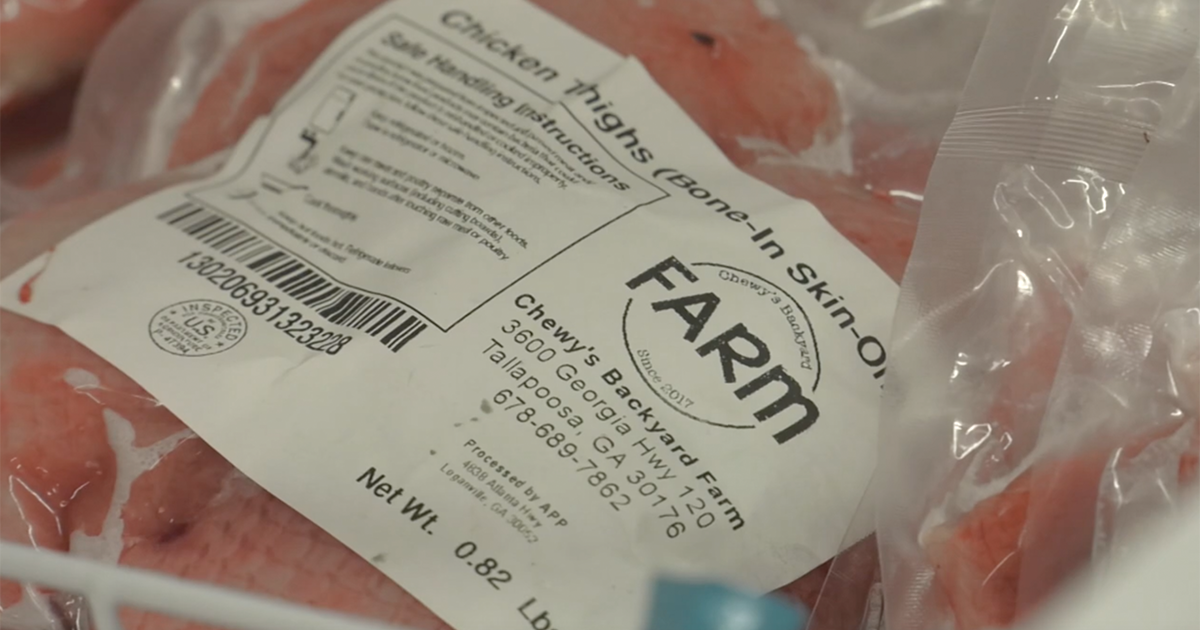Tallapoosa, GA
When you think poultry farming operations around the state, this is probably the picture that comes to mind. But that’s not the case here at Chewy’s Backyard Farm, where they raise and sell pasture raised chicken on an operation that has really evolved over the years.
“After twenty-five years of being in the military, I knew I wanted to get back to the land. So, my wife Katie and I started out small on an acre and a half in Polk County just growing vegetables, going to farmers markets. Then the demand kind of exceeded what we had. So, we decided in 2021 to pull up operations and go look for more land,” says Chewy’s Backyard Farm Owner, David Bridges.
With that new land came a new idea. As for the moment of inspiration, it came about while selling their produce at a local farmer’s market.
“One day at one of our farmers markets, I talked to another beef vendor, and I asked him about chicken. And he was like, ‘yeah, people are constantly asking me for chicken and I just don’t want to do it. It’s a lot of work and I don’t want to do it.’ And basically a lightbulb went off in my head, ‘there’s a market, there’s a market opportunity there,'” says Bridges.
A lot of work might even be an understatement, with the process of raising these birds to maturity being a daily grind that begins from day one.
“We actually go down to Ray City, Georgia and pick up the birds from the hatchery. That’s the first time we handle them, put them in the brooder. We then monitor the brooder constantly. Then we move them out on the field. Then we move the chicken tractors every day to fresh grass. So, they’re not sitting in their waste. They’re constantly getting fresh grass, fresh feed, fresh sunlight, that type of thing. I spend probably five to six hours a day either moving them, monitoring them or feeding them,” says Bridges.
All that time and sweat equity pays off in the final product, as they are able to oversee every step of the process in order to maintain the highest quality possible.
“I definitively feel like you control the quality better. Of course, they’re getting sunlight. They’re getting all that vitamin D. They’re getting all the vitamins and minerals that are in the ground, in the grass and I can kind of also monitor their health as well when we’re moving them and stuff. I can see if they’re alright, I can tell if something’s wrong with that one. I can maybe pull that one out of the flock or out of that tractor and isolate it maybe so I don’t have loss,” says Bridges.
As for the farm’s name, while it might sometimes be confused for a dogfood company, it’s actually an ode to its actual boss.
“In our other property that we lived on, we had this big, back window in both the breakfast nook and in the living room. He would sit out at that window and look in the backyard. So, that was the area we were actually going to start to turn over and grow produce in. And I said well, that’s Chewy’s backyard, so, we need to ask him if we can farm it. So, basically, there’s where it stuck,” says Bridges.
By: Damon Jones

